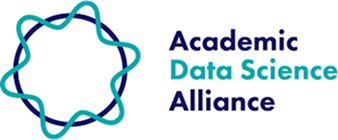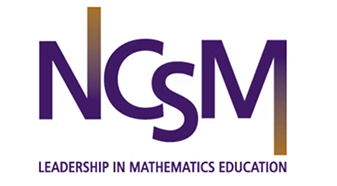Randomization
When identifying a potential cause of a phenomenon, clearly describe the usefulness of randomization for constructing an argument with data.
K–2 Competencies
Classroom resources
Data Science Starter Kit Module 4: Drawing Conclusions - Interpreting Problems and Results
Welcome to one of the most critical skills in data science—learning how to draw valid conclusions from data and understanding what those conclusions can and cannot tell us. This module focuses on the thinking skills that separate good data science from misleading claims.🔗
Interpreting Problems and Results isn’t about complex statistical tests or advanced mathematics. It’s about developing the intellectual honesty and critical thinking skills to say, “Based on this data, here’s what we can reasonably conclude, here’s what we’re not sure about, and here’s what we still need to investigate.”
3–5 Competencies
Recognize that randomization ensures fairness in selection processes and consider the potential consequences of non-blind selection methods. e.g., picking a raffle champion, prizes from a jar, candy of different sizes from a treat bag without looking
Classroom resources
Data Science Starter Kit Module 4: Drawing Conclusions - Interpreting Problems and Results
Welcome to one of the most critical skills in data science—learning how to draw valid conclusions from data and understanding what those conclusions can and cannot tell us. This module focuses on the thinking skills that separate good data science from misleading claims.🔗
Interpreting Problems and Results isn’t about complex statistical tests or advanced mathematics. It’s about developing the intellectual honesty and critical thinking skills to say, “Based on this data, here’s what we can reasonably conclude, here’s what we’re not sure about, and here’s what we still need to investigate.”
6–8 Competencies
Explain why randomization is an effective way to reduce other potential influences, and as a result, successfully isolate the impact of an independent variable.
Classroom resources
Data Science Starter Kit Module 4: Drawing Conclusions - Interpreting Problems and Results
Welcome to one of the most critical skills in data science—learning how to draw valid conclusions from data and understanding what those conclusions can and cannot tell us. This module focuses on the thinking skills that separate good data science from misleading claims.🔗
Interpreting Problems and Results isn’t about complex statistical tests or advanced mathematics. It’s about developing the intellectual honesty and critical thinking skills to say, “Based on this data, here’s what we can reasonably conclude, here’s what we’re not sure about, and here’s what we still need to investigate.”
9–10 Competencies
Explain why randomization mitigates many potential sample biases (e.g., observation bias, collection errors, selection bias) concurrently in a variety of examples.
Classroom resources
Data Science Starter Kit Module 4: Drawing Conclusions - Interpreting Problems and Results
Welcome to one of the most critical skills in data science—learning how to draw valid conclusions from data and understanding what those conclusions can and cannot tell us. This module focuses on the thinking skills that separate good data science from misleading claims.🔗
Interpreting Problems and Results isn’t about complex statistical tests or advanced mathematics. It’s about developing the intellectual honesty and critical thinking skills to say, “Based on this data, here’s what we can reasonably conclude, here’s what we’re not sure about, and here’s what we still need to investigate.”
11–12 Competencies
Recognize that randomization can happen in various settings, regardless of the intervention or events involved. e.g., artificial interventions, accidental or chance events, unrelated to the question of interest
Differentiate between lab experiments and natural experiments in scenario-based questions.
Classroom resources
Data Science Starter Kit Module 4: Drawing Conclusions - Interpreting Problems and Results
Welcome to one of the most critical skills in data science—learning how to draw valid conclusions from data and understanding what those conclusions can and cannot tell us. This module focuses on the thinking skills that separate good data science from misleading claims.🔗
Interpreting Problems and Results isn’t about complex statistical tests or advanced mathematics. It’s about developing the intellectual honesty and critical thinking skills to say, “Based on this data, here’s what we can reasonably conclude, here’s what we’re not sure about, and here’s what we still need to investigate.”
Advanced Competencies
Implement randomization using a random seed in a simulation technique using a computer-based analysis tool to compare sampling techniques (e.g., sampling with replacement or without replacement).
Classroom resources
Support other teachers by sharing a resource
Do you have a lesson plan, video, or tip that could help others teaching this topic?
Share feedback on the Learning Progressions
Your feedback helps us improve these progressions for teachers around the world. Thank you!
Share feedback on the Learning Progressions
Your feedback helps us improve these progressions for teachers around the world. Thank you!
Share a classroom resource
Suggesting a resource helps students around the world learn essential data science skills.








.png)














